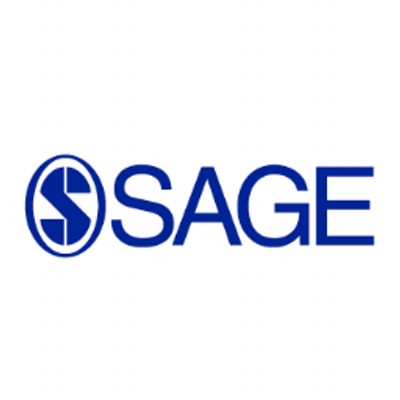Discovery-Based Learning stands as a dynamic pedagogical approach that places students at the heart of their educational journey. In contrast to traditional methods that emphasize rote memorization and passive reception of information, this method champions hands-on exploration and inquiry. It’s about empowering students to learn through unique, self-directed experiences, particularly vital in STEM fields where questioning and exploration are paramount.
Unveiling Knowledge Through Exploration: What is Discovery-Based Learning?
Discovery-Based Learning is more than just an educational technique; it’s a philosophy that learning is most effective when students are actively involved in the process of discovery. Instead of being told facts and figures, learners are encouraged to ask questions, investigate, and construct their own understanding of concepts. This approach shifts the focus from teacher-centered instruction to student-centered exploration, fostering a deeper and more meaningful engagement with the subject matter. It’s about igniting curiosity and allowing students to navigate their learning path, guided by their own inquiries and investigations.
Why Discovery-Based Learning Matters: Key Benefits
The advantages of Discovery-Based Learning are multifaceted, contributing significantly to a richer and more effective educational experience.
Enhanced Engagement and Motivation
When students are active participants in their learning, their engagement levels naturally soar. Discovery-Based Learning taps into intrinsic motivation by allowing students to pursue their curiosities. This active involvement transforms learning from a chore into an exciting exploration, making students more invested in the outcomes.
Development of Critical Thinking and Problem-Solving Skills
This approach inherently cultivates critical thinking. Students are not just memorizing answers; they are learning how to ask the right questions, analyze information, and solve problems independently. These skills are crucial not only for academic success but also for navigating real-world challenges.
Fostering Deeper Understanding and Retention
Learning by doing leads to a more profound understanding. When students discover concepts themselves, they are more likely to remember and apply this knowledge in different contexts. This deeper level of understanding surpasses surface-level memorization, creating a more lasting impact.
Preparation for Research and Innovation
Discovery-Based Learning lays a solid foundation for future researchers and innovators. By engaging in inquiry and exploration, students develop the mindset and skills necessary for research, fostering a spirit of innovation and a proactive approach to problem-solving.
Increased Student Ownership and Autonomy
This method empowers students by giving them ownership of their learning process. They become autonomous learners, capable of taking initiative and making decisions about their education. This autonomy builds confidence and self-reliance, essential qualities for lifelong learning.
Implementing Discovery-Based Learning: Examples and Applications
Discovery-Based Learning is versatile and can be applied across various disciplines, although it finds particular resonance in STEM education.
In STEM Subjects
STEM fields naturally lend themselves to Discovery-Based Learning. Science experiments, mathematical investigations, engineering design challenges, and technological explorations are all prime examples. For instance, instead of simply learning about physics formulas, students might design and conduct experiments to understand these principles in action.
Across Other Disciplines
While particularly effective in STEM, Discovery-Based Learning is not limited to these fields. In humanities, students can explore historical documents or literary works to discover underlying themes and perspectives. In social sciences, they can conduct surveys or analyze data to understand social phenomena. The key is to create opportunities for students to explore and discover within any subject.
Real-World Examples and Research
Programs like the Students Tackling Advanced Research (STAR) Scholars Program at Drexel University exemplify Discovery-Based Learning in action. These programs offer undergraduates early research experiences, allowing them to engage in projects and contribute to real scientific inquiries. Course-based undergraduate research experiences (CUREs) also represent a powerful implementation of this method, integrating research directly into the curriculum and making discovery accessible to a broader range of students.
 Drexel CASTLE Logo
Drexel CASTLE Logo
Research consistently highlights the positive impact of Discovery-Based Learning. Studies show that early undergraduate research experiences, framed within a discovery-based approach, lead to significant learning gains for both STEM and non-STEM undergraduates. These experiences foster student ownership and enhance research career intentions, demonstrating the profound influence of discovery on student development.
Navigating the Challenges of Discovery-Based Learning
While highly beneficial, implementing Discovery-Based Learning effectively requires addressing certain challenges.
Classroom Management
Managing a classroom where students are actively exploring can be more complex than traditional lecture-based settings. Teachers need to be adept at facilitating exploration while maintaining a productive learning environment.
Assessment Strategies
Traditional assessment methods might not fully capture the learning outcomes of Discovery-Based Learning. Developing assessment strategies that value the process of discovery, critical thinking, and problem-solving is crucial. This might include project-based assessments, portfolios, or presentations that showcase student learning in a more holistic way.
Teacher Training and Support
Teachers may need professional development to effectively facilitate Discovery-Based Learning. Support and training in guiding inquiry, fostering exploration, and adapting to student-directed learning are essential for successful implementation.
Conclusion: Embracing Discovery for Future Education
Discovery-Based Learning offers a transformative approach to education, aligning perfectly with the needs of modern learners and the demands of a rapidly evolving world. By prioritizing exploration, inquiry, and hands-on experiences, it empowers students to become active, engaged, and lifelong learners. Embracing Discovery-Based Learning is not just about changing teaching methods; it’s about fostering a generation of innovative thinkers and proactive problem-solvers ready to tackle the challenges of tomorrow. Educators are encouraged to explore the wealth of resources and research available to effectively implement and refine discovery-based approaches in their classrooms and institutions.

